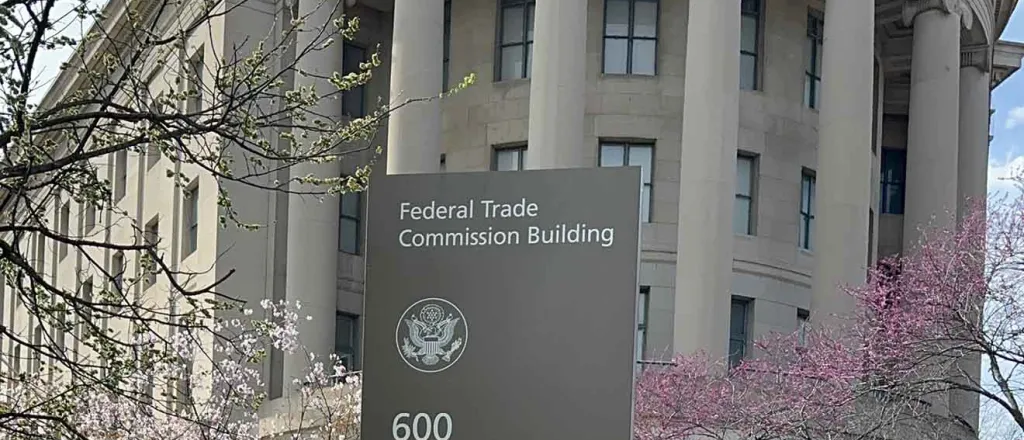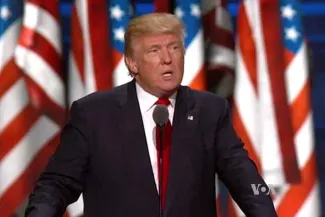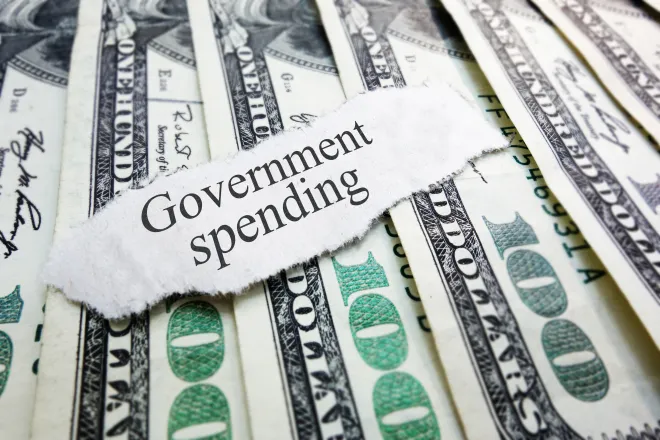
Competition in Big Tech is at stake as Trump seeks more control of FTC
Leaders in the tech industry have enjoyed more freedom to make business moves and an overall deregulatory attitude under the Trump administration, but antitrust experts say the administration’s hands-off approach could end up hurting American companies’ ability to innovate and compete on a global scale.
Antitrust laws protect fair competition, ensuring that no one company controls an entire market, price gouges for their products or controls the cost of labor. In the short term, a lax approach to these laws could mean the American people may see more big tech companies merge or acquire smaller competitors.
In the long-term, it means the already small group of people running the country’s most powerful tech firms would gain even more control of the market, Illinois-based legislative attorney Maaria Mozaffar said.
“Traditionally, innovation in tech is inspired by how we can solve problems. And if there’s fewer people that are not invested in solving problems, but more invested in making profit, the innovation’s intent is going to be different,” Mozaffar said. “We’re going to get a repetition of the same models and the same products that are not actually solving problems, but just a faster way to make money.”
Trump’s approach to the FTC
Though Democrats and Republicans may have had different “philosophies” for antitrust rules in the past, it’s unusual to see wide swings in attitudes from the Federal Trade Commission (FTC), said New Jersey-based antitrust attorney Nadine Jones.
The independent regulatory agency, which protects consumer interests and anti-competitive business practices like price-fixing, illegal mergers and monopolization, has historically run with little influence from the president, Jones said, though it technically is housed under the executive branch.

President Donald Trump. Courtesy Voice of America.
But recent moves by the Trump administration suggest he wants a much more hands-on approach, Jones said. Before taking office, Trump chose Andrew Ferguson as the FTC chairman, replacing Lina Khan, who fought Big Tech overreach during her tenure. Together with antitrust specialist Mark Meador, the pair have focused on issues of “censorship” by big tech, arguing that tech platforms have unfairly restricted conservative views.
Earlier this year, Trump fired two Democratic commissioners from the FTC, a decision that was recently supported by the Supreme Court, and set a precedent that gives more executive branch control over the independent agency.
And in August, Trump revoked a Biden-era executive order that called for enforcement of antitrust laws to promote more competition within industries and keep companies from monopolizing.
All of it points to a central theme of deregulation for the tech industry, with a goal of growing the industry with as little government involvement as possible. Trump’s alignments with big tech leaders during the 2024 election were probably the first clue that he’d handle the FTC differently, Jones said.
“I think if I were to try to read the tea leaves in past administrations, currying favor with the president was of less importance,” Jones said. “The DOJ, antitrust division, the assistant attorney general of the division was who you wanted to curry favor with, or the chair of the FTC. Whether or not you’re smiling nicely with the president was, I think, of less significance, because they typically left these technical areas of law to the experts.”

© iStock - monsitj
For California-based tech founder and author Mark Weinstein, The FTC holds a critical role in upholding democracy and free market capitalism. Trump’s attempts to fill the commission with Republicans is a threat to both concepts, he said.
“It’s concerning, even when he appoints people who are inclined to be strong antitrust enforcers, because they’re still appointed by the president,” Weinstein said. “There’s a quid-pro-quo that’s clearly inferred there.”
Weinstein thinks that before his second term, Trump realized the immense power that information giants like Meta and Apple had in controlling content and shaping public opinion. Deregulatory policies could curry favor with the leaders of Big Tech, and help him control information, Weinstein said.
“If Meta bans him from their platform, then they have all the power,” he said. “And he wants to have all the power.”
With influence over large tech platforms, Mozaffar said, Trump is more capable of spreading his ideas around diversity, equity and inclusion and past “censorship” of conservatives.
“When you see the tech giants behind Donald Trump, people think it’s just about making them richer,” Mozaffar said. “It’s really [Trump’s] ability to have control over how those tech platforms do their business, as far as content control.”
What does this mean for American tech companies?
So far, the FTC has been continuing antitrust lawsuits from previous administrations against some tech giants, like Google, which is currently awaiting a decision on a trial alleging it monopolized its search engine, after being found liable in a separate advertising-related trial in 2024.
The commission is also awaiting an outcome on a six-week trial in a case it brought against Meta, parent of Facebook, alleging in 2020 — under direction from the first Trump administration — that the company created a monopoly by acquiring Instagram and WhatsApp.
Trump-appointed FTC commissioner Meador said at NYU’s Law Forum last month he believes most Americans support the scrutiny into big tech companies.

© metamorworks . iStock-968113166
“I don’t think this moment is a flash in the pan,” Meador said during the event. “I think that it is growing out of deeper sentiments and concerns about economic fairness and economic regulation and policy at a very broad level. And this is just one manifestation of it. I think that’s a generational thing. I think it’s only going to amplify. So, I don’t think it’s going away.”
But the current Trump administration has only brought one antitrust case against a tech merger, when it sued to blockHewlett Packard Enterprise from buying Juniper Networks for $14 billion earlier this year.
Trump is likely feeling out his options, Mozaffar said — he could fall in line with more traditional Republican action, aiming to enforce antitrust laws to promote competition. But he could also be using a framework FTC Chair Ferguson outlined, which criticises tech platform’s content moderation rules, as a way to rein in platforms that the GOP has long accused of censoring conservative viewpoints.
Mozaffar said she’s watching how the administration handles both horizontal and vertical mergers. Horizontal mergers, when two similar companies merge to create one company, are likely more familiar to the average American. But vertical mergers, which involve partnerships of companies across several layers of a supply chain, have the potential to have truly expansive power.
One possible example is a recent $100 billion deal between AI giant OpenAI and computing powerhouse Nvidia. Nvidia’s investment into OpenAI includes the ability to build out its data center capacity and computing chip needs, tying the companies’ growth and success together. The deal immediately raised antitrust concerns.
“How much control do you have over every piece of the process? To the point where there’s no innovation in product and competition leading up to that final product?” Mozaffar said. “And then how much are you controlling as far as protecting labor rights and best practices, because you can always cut corners to be able to make sure that the final product serves the profit that it’s supposed to serve.”
Amid conflicting federal antitrust cases, Jones advised corporate lawyers to pay attention to their state’s antitrust laws, as state attorneys general are some of the biggest enforcers of antitrust law in the country.
She said although letting tech businesses operate unfettered may meet some of Trump’s short-term goals, a lack of enforcement will ultimately make the United States a less competitive, less innovative place.
“Antitrust philosophy believes the only way to get genuine benefits for consumers, to get people to race to get to the finish line of your dollars — and you choosing them with your dollars — is to compete with each other,” Jones said. “And then we, the consumers, enjoy the fruits of those competitions.”

















